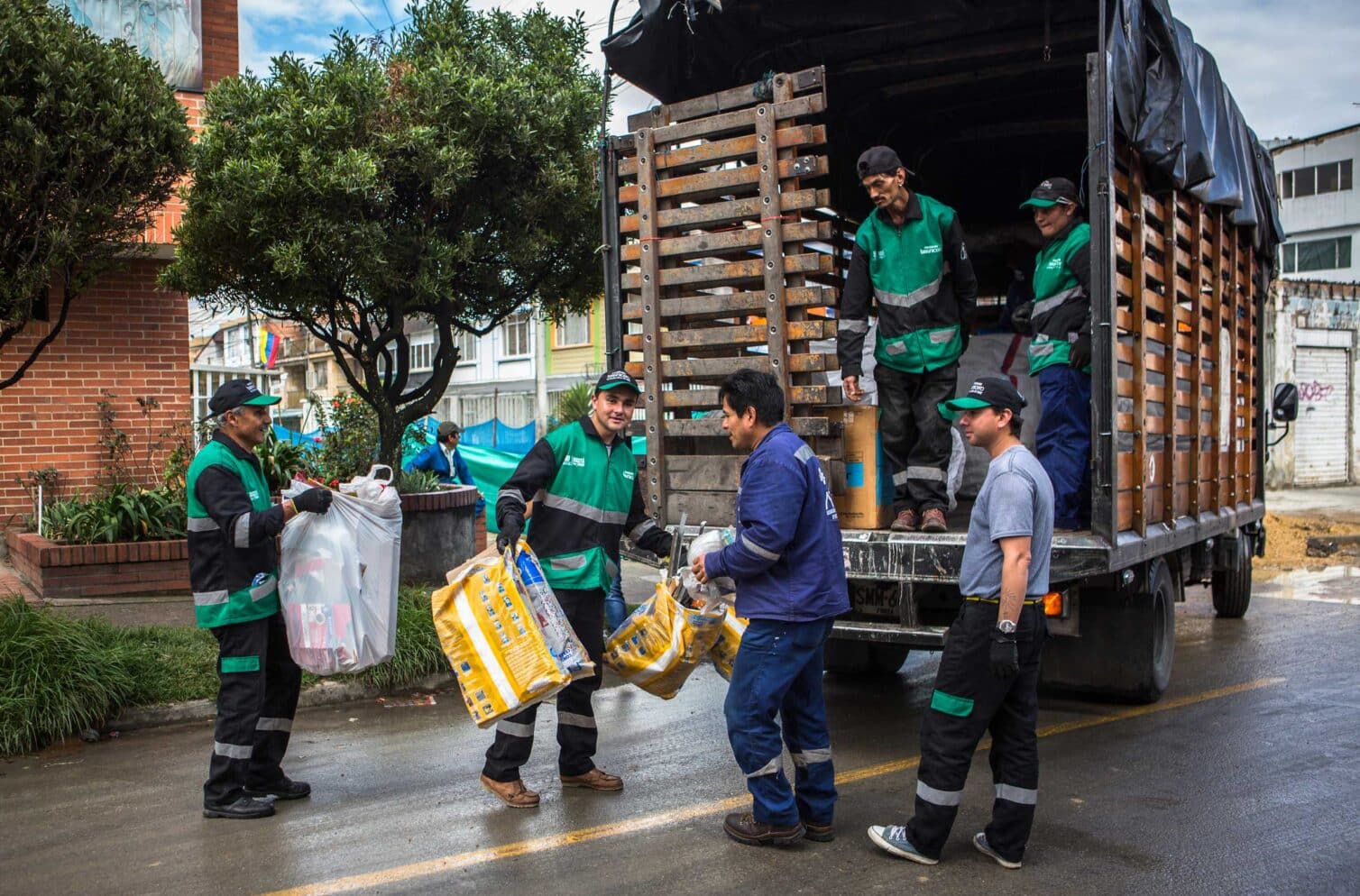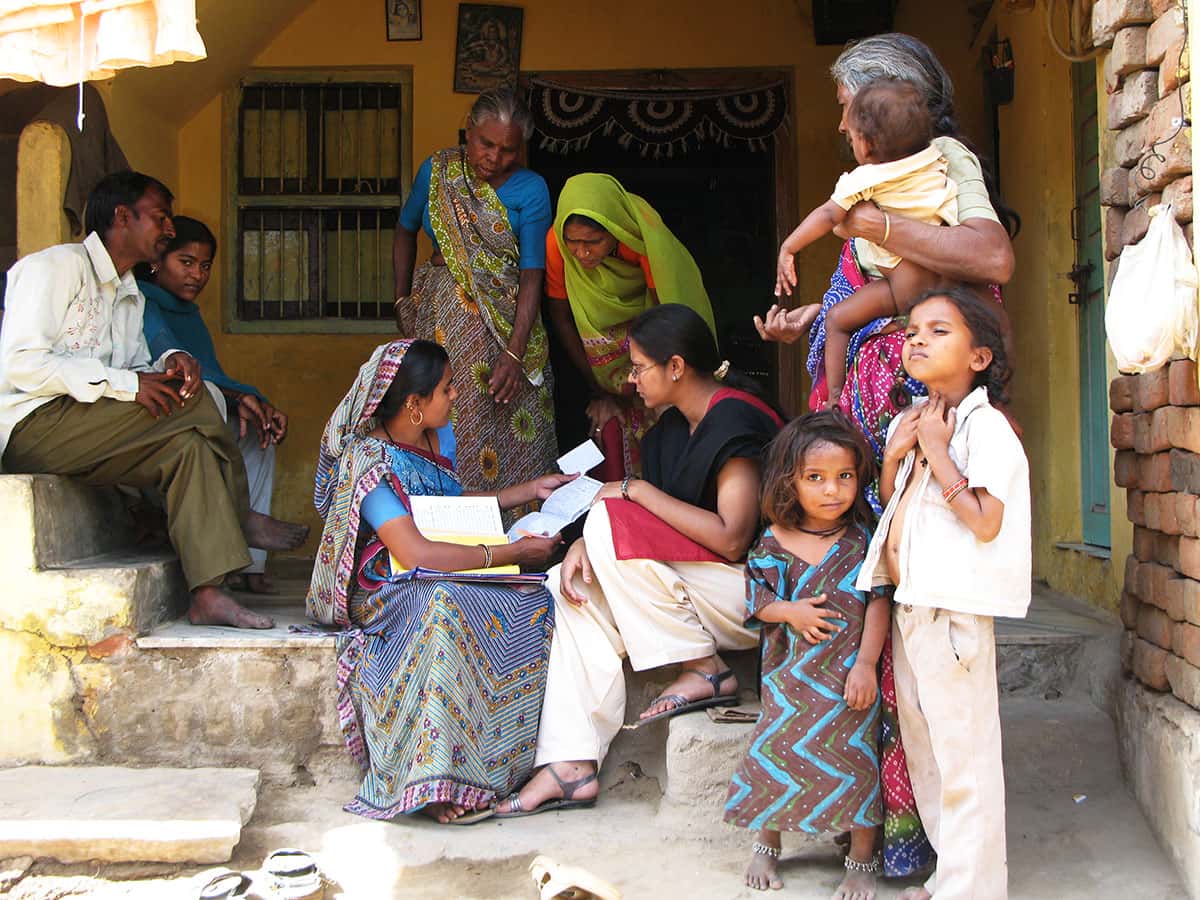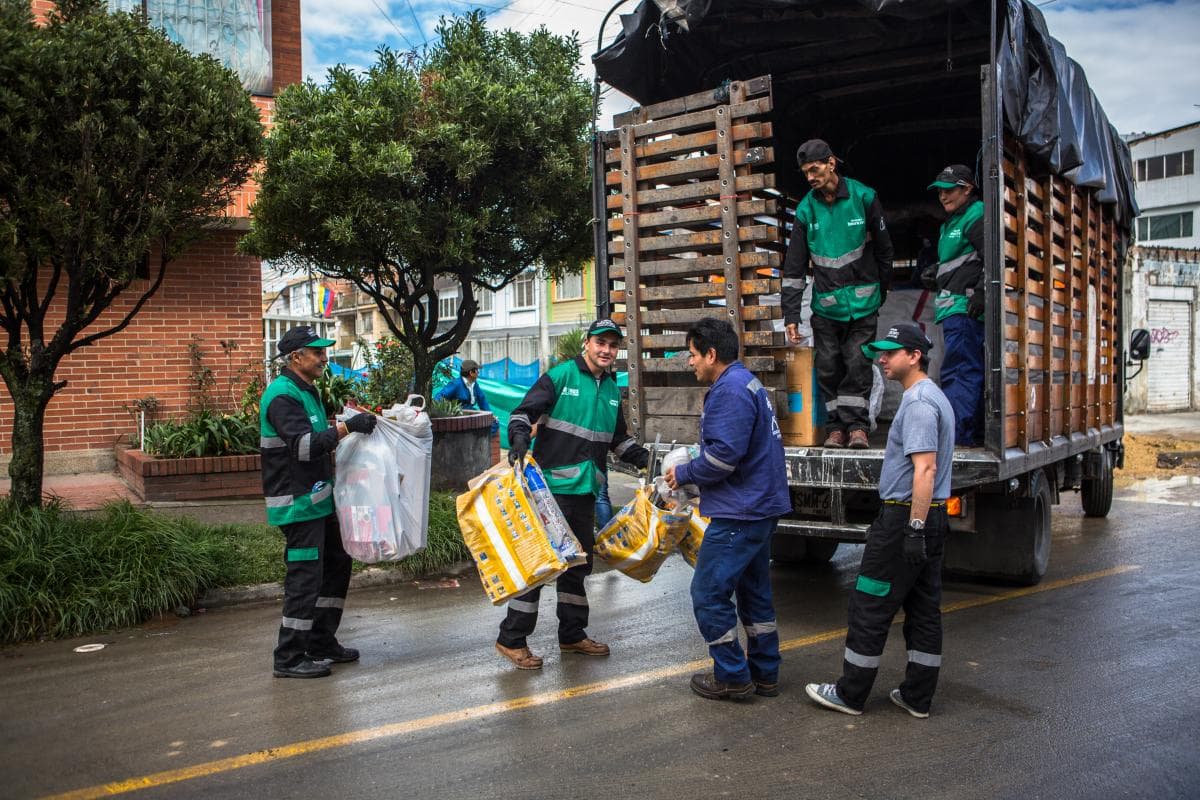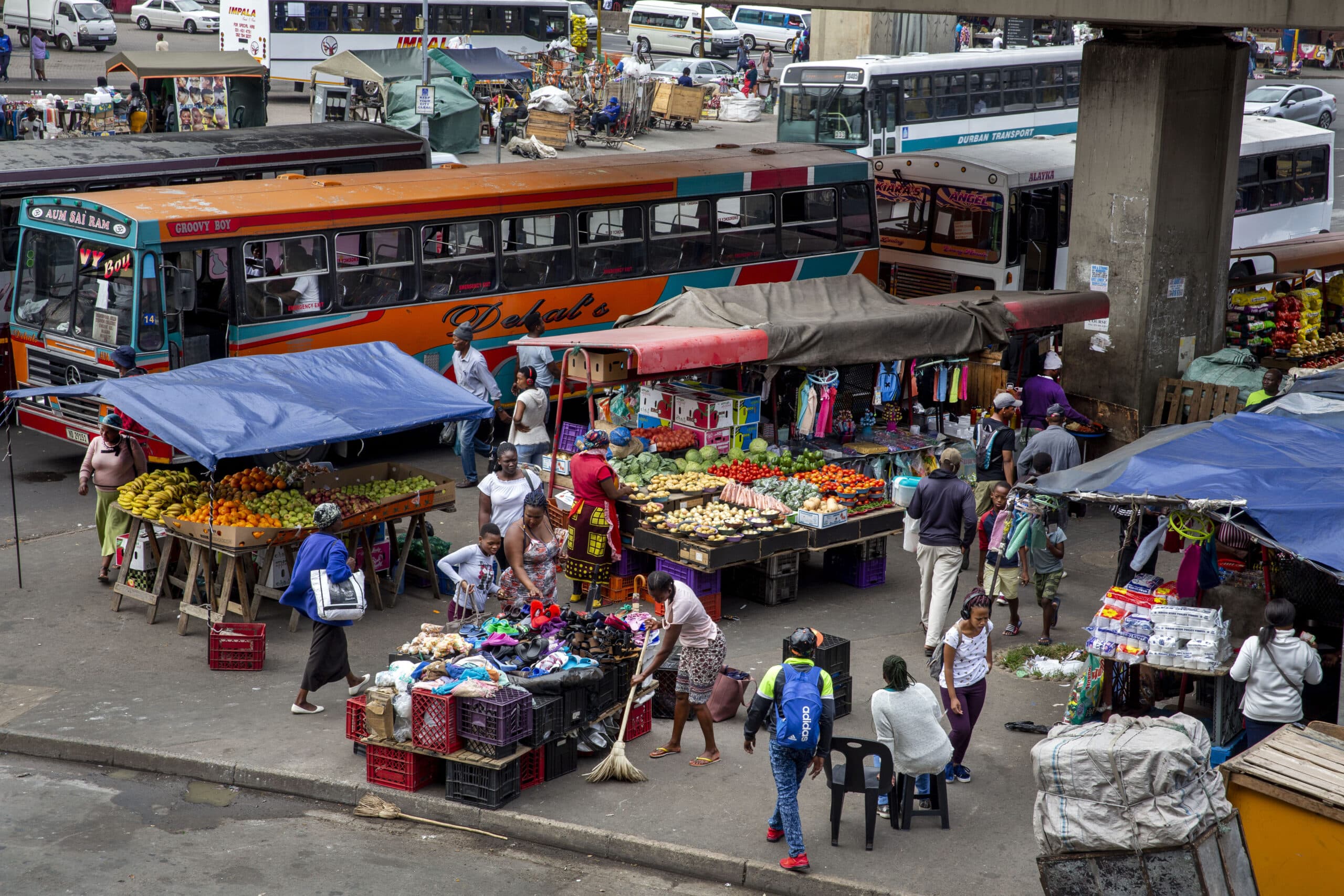
BOGOTÁ, COLOMBIA. Members of the Asociación de recicladores de USME ARAUS, an affiliate of the Asociación de Recicladores de Bogotá (ARB), an organization of waste pickers associations and cooperatives that advocates for waste pickers' rights, go door-to-door to collect recyclable materials in Puente Aranda. Through interaction with the residents, the waste pickers providing this service play an important role in educating residents on the need to recycle, how to do it, and on the relevance of their work. We are not disposable, glasses are recyclable are parts of the lyrics of the song they play on the megaphone to let neighbours know that they have arrived. Photo Credit: Juan Arredondo/Getty Images Reportage (Photo Credit Required) July 21, 2015.
OVERVIEWWhat is the Informal Economy?
The informal economy is made up of all the economic activities, enterprises, jobs and workers that are not covered in law or in practice by formal arrangements. These include legal frameworks for enterprise operations or social and legal protections for workers.
Read Frequently Asked QuestionsWho works in the informal economy?
Nearly 2 billion people earn a living in the informal economy, according to ILO estimates. This represents close to 60% of the world’s workers. Informal work is present in high and low income countries and across regions, industries and sectors; a significant proportion of urban informal employment falls into these four occupations: domestic workers, home-based workers, street vendors and market traders, and waste pickers.
Source: ILO (2023), Women and men in the informal economy: A statistical update(this link opens in new window)What is the difference between the informal sector and informal employment?
These terms are related, but describe different aspects of the economy and labour market. The informal sector refers to economic units that produce goods or services for the market but are not formally recognized. Informal employment refers to activities for pay or profit that are not covered by formal arrangements, regardless of whether they take place in the informal sector or the formal sector.
Source: ILO (2023), Resolution concerning statistics on the informal economy(this link opens in new window)Does the informal economy contribute to the overall economy?
Yes. Workers in informal employment sell the food we eat, make the clothes we wear, care for our homes and families, and keep cities healthy by helping to manage waste. The informal economy contributes to national and global economies. In Mexico, the informal economy contributes almost a quarter of the country’s GDP.
Source: INEGI (2023), Medicion de la economía informal (MEI), 2022 preliminar(this link opens in new window)Do workers in informal employment pay taxes?
Yes. Many workers in the informal economy contribute to tax revenue. Research done in Accra, Ghana, found that two-thirds (66%) of surveyed self-employed informal-sector operators paid at least one type of tax, fee or payment related to their work.
Source: Tight Tax Net, Loose Safety Net: Taxation and Social Protection in Accra’s Informal Sector. WIEGO Working Paper No. 45 (this link opens in new window)
HOW BIG IS THE INFORMAL ECONOMYThe majority of the world’s workforce is informal
The International Labour Organization (ILO) released updated estimates of the world’s informal workforce in 2023: nearly 2 billion workers earn a living in the informal economy.
Access Global Statistics on the Informal Economy- 9 in 10
workers in low-income countries are in informal employment
- 55%
of women who work, work in informal employment
- 47%
of workers in informal employment are own-account workers

OCCUPATIONAL GROUPSA significant proportion of urban informal employment around the globe falls into these four occupations: domestic workers, home-based workers, street vendors and market traders, and waste pickers.
These are also occupational groups where women are often over-represented. Although working conditions and earnings vary, workers in informal employment have this in common: they aren’t recognized or adequately protected under labour laws, nor can they access employment benefits or protections.
Domestic Workers
Domestic workers are employed to provide services for households. There are over 76 million domestic workers in the world, most of them women. They provide a range of services: cleaning, cooking and caring for children, older people and disabled people; they also provide gardening, driving and security services.
Domestic WorkersHome-Based Workers
Home-based workers produce goods or services in or near their homes for local, national and global markets. There are over 260 million home-based workers in the world, most of them in Asia. They are present in many industries: stitching garments, weaving textiles, assembling micro-electronics, providing IT services and more.
Home-Based WorkersStreet Vendors & Market Traders
Street vendors sell goods and offer services in public spaces, including open-air spaces, transport junctions and construction sites. Market traders work in stalls or built markets on publicly or privately owned land. They offer everything from fresh vegetables, prepared foods, building materials and crafts, to auto repairs and haircuts.
Street Vendors & Market TradersWaste Pickers
Waste pickers make a living collecting, sorting, recycling and selling materials that someone else has thrown away. It is estimated that 20 million people worldwide make their living from recycling waste.
Waste PickersGarment Workers
Workers in the garment and textile industry work in various parts of the manufacturing process, often outside of factories. Homeworkers and home-based workers form a significant portion of the garment worker sector.
Garment Workers
Worker Stories
Visit WIEGO's Research Library
Browse over two decades-worth of informal economy research, policy analysis, statistics and documentation of organizing efforts.
Visit the Research LibraryAbout the Informal Economy
GOOD PRACTICESRecent Innovations
Curious how governments have taken action to support workers in informal employment?
Check out Recent Innovations
